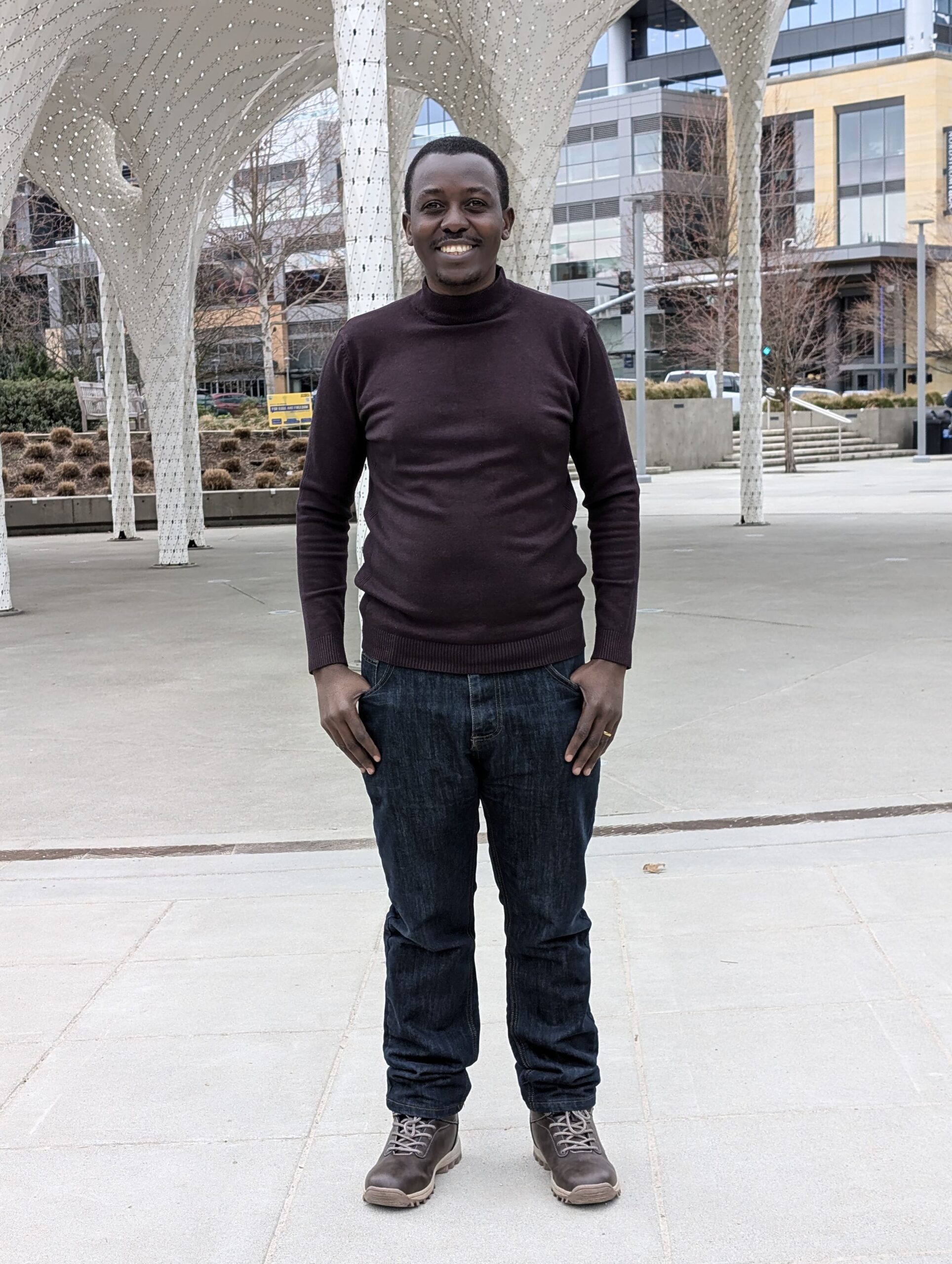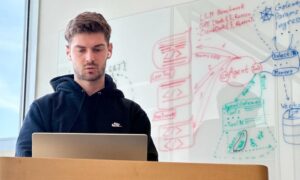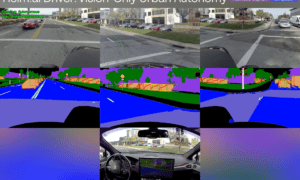Amos Nyombi believes that the new technologies that have emerged in the financial sector can be used by nonprofits to make a difference in addressing social problems like homelessness.
The problem is getting organizations and government programs that are used to using outdated financial systems to try new things. Enabling this shift has become Amos’s main passion in recent years, as he works to implement AI, blockchain, and cloud-based financial solutions in the public sector to support programs that combat homelessness. As controller for United Way of King County in Seattle, Washington, he has helped the organization better fulfill its goals of ensuring community access to housing, food, educational opportunities, and financial stability.
While he has worked to redesign financial workflows, implement automated reporting systems, and integrate AI-driven financial analytics, he has also been pursuing an MBA. His ongoing research focuses on enhancing non-profit efficiency to address homelessness through advanced technology and aims to bridge existing gaps and promote financial accountability. We recently interviewed Amos to discuss his background and his personal and professional plans.
The following is an edited transcript of that interview.
What got you interested in a career in finance and accounting?
Growing up in Uganda, I saw firsthand how financial mismanagement could hinder essential services, and how it could limit the impact of well-intentioned initiatives. This inspired me to bridge the gap between financial strategy and social impact. It fueled my passion for financial accountability and efficiency and has become the driving force in my career to this day. That’s the real reason why I have always chosen to work in sectors where my financial expertise can drive real-world change. Whether it’s a non-profit, higher education, or in healthcare, my work is always aligned with a desire to improve lives and drive social good.
Where and what did you study?
I first obtained a bachelor’s degree in business administration, accounting, at Gulu University in Uganda. This provided me with foundational knowledge in financial management, auditing, and regulatory compliance. It also equipped me with core skills in accounting principles, financial controls, and grant management, and sparked my interest in financial transparency and accountability. After that, I gained a postgraduate diploma in financial management from the Uganda Management Institute and a Master of Business Administration at Mbarara University of Science and Technology. This strengthened my ability to optimize financial processes, manage risk, and drive cost-saving initiatives, and also allowed me to implement best practices in tax compliance, donor reporting, and financial governance. And I’m not done, to be honest.
I plan to start a PhD program in 2026 that will focus on financial accountability in the public and nonprofit sectors with a focus on data-driven approaches. This will allow me to deepen my research and contribute to academic discourse on financial efficiency. I also became a Certified Public Accountant recently. Overall, my education has played a pivotal role in shaping my career.

Amos Nyombi
Describe your early career.
My early career involved working as an accountant in healthcare and educational institutions, where I gained hands-on experience in financial reporting, compliance, and donor fund management. As I advanced, I took on roles with increasing responsibility, managing multi-million-dollar grants and implementing financial systems that improved transparency and efficiency. I was a finance manager at Mbarara University of Science and Technology in Uganda, where I managed multi-million-dollar donor-funded projects, ensuring accuracy in financial reporting and achieving significant success rate in external and donor audits. I also was a senior accountant at Mayanja Memorial Medical Training Institute & Bwindi Community Hospital in Uganda. In that role, I managed financial reporting, budget forecasting, and grant allocations for various healthcare initiatives. I successfully optimized donor fund allocations, improving funding efficiency, and ensured regulatory compliance.
You recently became controller at United Way of King County. What does this job entail?
In my current role at United Way of King County, I oversee the accounting function, managing a team of accounting professionals, and driving process improvements that enhance financial efficiency and high performance. I have successfully led the implementation of an accounting system replacement. I also ensure compliance with internal controls and tax regulations, including form 990 and 1099 filings, and support executive decision-making through financial analytics. I also work closely with the chief financial officer, board of directors, and finance & audit committees here to provide insights that drive strategic financial decisions.
What has been a professional achievement that makes you most proud?
Certainly I would have to mention my role as a product owner for the Accounting System Replacement Project, because it was challenging, but in a good way. This project involved redesigning the chart of accounts and implementing a new cloud-based financial system to streamline our operations. Technology was just a piece of the effort though. I had to manage a team of experts and address technical challenges and stakeholder needs. Inarguably, it was a success. We saw an improvement in financial reporting speed, significant reductions in processing errors, and improved decision-making capabilities across the organization. It’s not easy to balance technical proficiency with strategic oversight, but I managed to pull this off. It’s a testament to my commitment to innovation and efficiency, I think.
Who inspires you most?
I would have to name Peter Drucker, of course. He was an Austrian who came to the US and became a leader in the field of management education. He has this one quote, “The best way to predict the future is to create it,” which really resonates with me. It aligns with my own focus on innovation and productive leadership. I agree with him that the future is shaped through actively creating solutions and not just waiting for them to happen. Ray Dalio’s Principles is also a big influence. That book deeply influenced my approach to decision making and leadership. I’d also have to mention The Lean Startup by Eric Ries. He’s written a few books about startups and entrepreneurship. Ries’ principles on innovation and continuous feedback loops have been incredibly useful in my own work, especially when leading projects in technology integration.
What are your future plans?
Well, as I noted before, I’m also planning to pursue a PhD. This will help me to solidify my role as a thought leader in the field. My research will focus on how innovative financial technologies can be adapted for nonprofits. I also will continue to publish articles on my research and will continue leading projects at United Way and other organizations. We’ll be testing AI and blockchain solutions that improve financial accuracy and transparency. Connected to that, I want to work with policymakers, business leaders and academics to develop standards and best practices, which will drive financial transformation in the public sector. Ultimately, my goal is to contribute to social good by ensuring that funds are used optimally to drive impactful change.
































